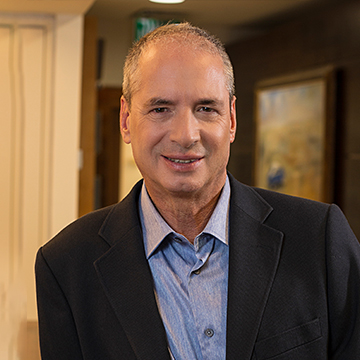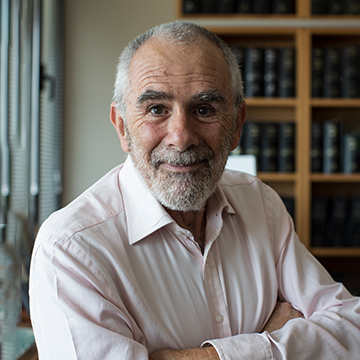Israeli Supreme Court: Sanofi Owes Unipharm Restitution for Patent Deception
The Israeli Supreme Court has rendered its important and controversial decision in the Sanofi v. Unipharm case, holding that a Patent Applicant who intentionally deceives the Patent Office in order to obtain a patent, may be liable, under the Israeli law of unjust enrichment, to pay generic competitors who delayed entering the market at risk because of this patent application, restitution of the profits gained at their expense as a result of this deception.
In a rehearing of an Appeal Judgment given by the Supreme Court, the Court, sitting as an enlarged panel of five judges, reaffirmed its own prior decision, which in turn upheld the precedential decision given in 2015 by the District Court (Central Division), which accepted a lawsuit filed by Unipharm (an Israeli generic company) against Sanofi (the well-known innovative global healthcare company). The Court found that Sanofi had intentionally deceived the Israeli Patent Office by knowingly withholding pertinent information from the Patent Office after it became aware that the Patent Application included erroneous information. The Patent Application is related to a certain polymorph (crystal form) of Clopidogrel Bisulfate, covering Sanofi’s blockbuster drug, Plavix.
Although Sanofi later abandoned the Patent Application following oppositions filed by Unipharm and Teva (Israel has a pre-grant opposition system), the District Court found that due to the pending Patent Application, Unipharm was deterred from entering the Israeli market at risk with a generic version of Plavix, and that consequently, Sanofi was liable to pay Unipharm restitution of the illicit profits made in the 15-month period during which Unipharm’s generic entry was delayed.
In 2021, the Israeli Supreme Court, by a majority of two to one, rejected Sanofi’s appeal against the District Court’s judgment.
Due to the precedential nature of the case, the Supreme Court accepted motions filed by Sanofi and the Israeli Attorney General, to hold a rehearing of the case before an enlarged panel of the Court.
Last week, the Supreme Court rendered its decision in the rehearing – in a lengthy (141-page) judgment, the Court, by a majority of four to one, reaffirmed the decisions of the previous instances and held that Sanofi was liable to pay Unipharm restitution of Sanofi’s profits made, at Unipharm’s expense, during the period that Unipharm’s generic product entry was delayed due to Sanofi’s conduct. The majority (3 judges) based their finding of violation of the Israeli law of Unjust Enrichment on the ground Sanofi was found to have acted in bad faith. A fourth judge found in favor of Unipharm based on his finding that Sanofi’s conduct amounted to an abuse of monopoly under Israel Competition Law, which in turn formed the basis of the finding of unjust enrichment.
All the judges emphasized that in order to establish an unjust enrichment cause of action in these types of cases, it is critical to establish that the Patent Applicant had intentionally deceived the Patent Office. The Supreme Court did not accept the District Court’s position that, in some cases, gross negligence is sufficient. The judges noted that this high bar, requiring intentional deceit, will limit the use of this cause of action and will also mitigate concerns that Patent Applicants might ‘flood’ the Patent Office with irrelevant information, just to be on the safe side.
The case has now been remanded to the District Court, to decide the monetary sum to be awarded to Unipharm. Sanofi will have to provide Unipharm with an account of its sales and profits during the relevant period. The case will require the court to address the complex question of apportioning Sanofi’s profits from the sale of Plavix in Israel during the relevant timeframe, as Unipharm will only be awarded the share of profits that was made at its expense. The matter is further complicated by the fact that Teva launched its generic product before Unipharm, which of course raises the question as to the extent of sales that Unipharm was prevented from making by this Patent Application.
In this regard, the Supreme Court noted that similar lawsuits against Sanofi for the same cause of action have been filed by additional entities. Thus, Maccabi, one of Israel’s largest health funds, filed an action claiming that had there been generic competition for Plavix during the relevant period, it would have been able to purchase the drug at lower prices. A class action has also been filed. These actions were stayed until the current decision of the Supreme Court, so the matter will continue to engage the Israeli courts for a considerable time.
This Supreme Court decision reinforces the need for Patent Applicants to ensure that all the relevant information in their possession is disclosed to the Patent Office. This pertains not only to the requirement to disclose all the relevant prior art during the prosecution of the Patent Application, but also to the accuracy of the information contained in the patent specification itself. As soon as any material error is detected in the specification, this should be immediately rectified.
Eyebrows have been raised and concerns have been expressed due to this lengthy saga, the full extent of which, including Sanofi’s monetary exposure, as well as the general effect on the pharmaceutical industry, has yet to pan out. The idea that third parties can try to claim damages not because they were enjoined from selling generic drugs due to an invalid patent but because they voluntarily refrained from entering the market while pursuing an opposition to challenge the patent application, is a far reaching and questionable outcome.
The information in this article does not constitute nor is intended to constitute legal advice. All information, content, and advice is for general information purposes only. The information provided above is not intended to replace advice provided by a lawyer. Readers should consult a lawyer dealing in the relevant field before undertaking any legal action




